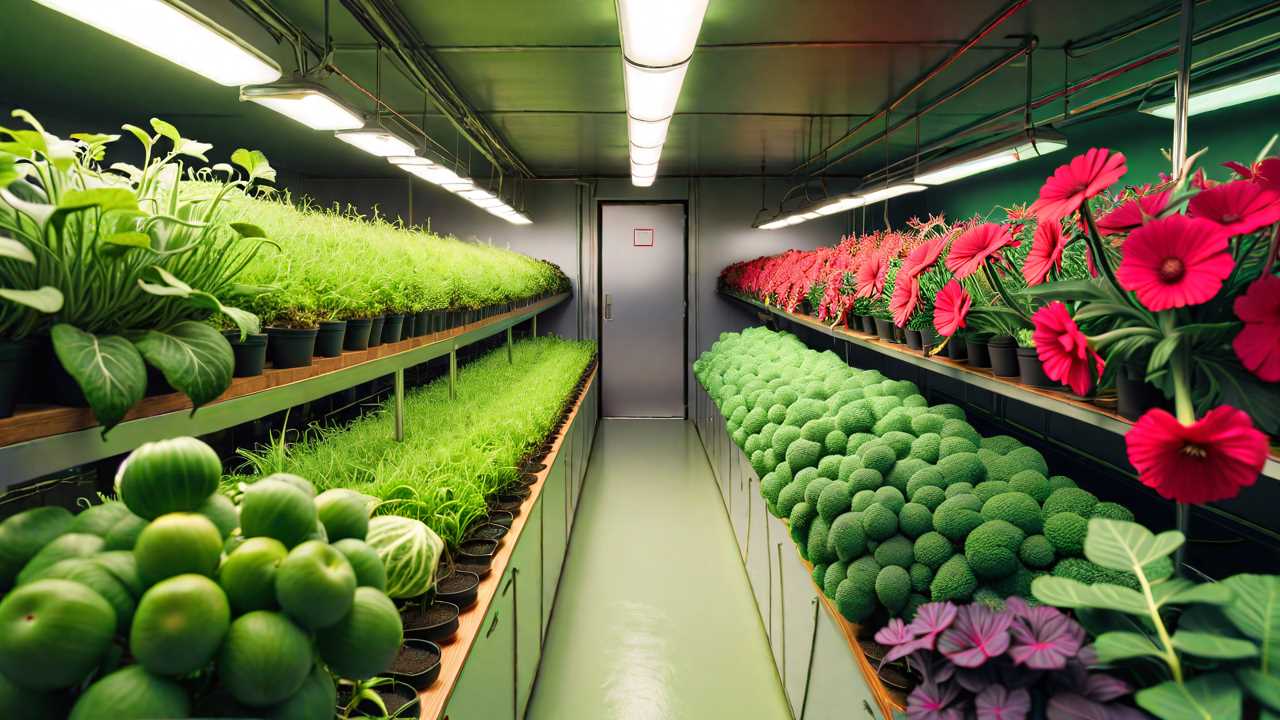
You may be surprised to discover the array of advantages that hydroponic gardening can offer. From accelerated growth to the efficient use of resources, hydroponics brings a range of benefits that traditional soil-based gardening struggles to match. But wait, there's more to uncover beyond just these surface benefits. Keep on to reveal the lesser-known advantages that hydroponic gardening holds.
Faster Growth Rates
Hydroponic gardening facilitates faster growth rates due to the direct delivery of nutrients to the plant roots without the need for soil as a mediator. This method allows for precise control over the nutrient solution, ensuring that plants receive the precise amount of nutrients they need for ideal growth.
Without the limitations of soil composition, pH levels can be adjusted to suit the specific requirements of each plant, leading to faster nutrient absorption and utilization. Additionally, the constant availability of water and nutrients in hydroponic systems means that plants don't need to expend energy developing extensive root systems to search for resources, allowing them to allocate more energy towards above-ground growth.
The efficient use of resources in hydroponics results in accelerated growth rates, enabling plants to reach maturity quicker than traditional soil-based methods. By eliminating the variables associated with soil, hydroponic gardening provides an ideal environment for plants to thrive and grow rapidly.
Water Conservation
To maximize the efficiency of water usage in hydroponic systems, precise monitoring and control of nutrient solution levels are essential. Unlike traditional soil-based gardening where water can be lost through runoff or evaporation, hydroponic systems recycle and reuse water efficiently. The closed-loop system minimizes water wastage, making hydroponic gardening a sustainable choice for water conservation.
In hydroponics, water conservation is further improved by the ability to tailor the nutrient solution precisely to the plant's needs. By providing the right amount of nutrients directly to the roots, plants can uptake water and essential minerals more efficiently. This targeted approach reduces water waste typically seen in traditional gardening methods.
Moreover, the controlled environment of hydroponic systems allows for efficient water absorption by plants, as they aren't competing with surrounding weeds or other plants for water. This focused delivery of water directly to the plant roots ensures maximum hydration and nutrient absorption, promoting healthy growth while conserving water resources effectively.
Space Efficiency
Efficient utilization of space is a key advantage of hydroponic gardening systems. By eliminating the need for soil, hydroponic setups can be tailored to fit into a variety of spaces, making them ideal for urban environments or locations with limited land availability.
Here are four ways in which hydroponic gardening maximizes space efficiency:
- Vertical Farming: Hydroponic systems allow plants to be grown vertically, stacking multiple layers of plants on top of each other. This vertical arrangement significantly increases the planting capacity within a smaller footprint.
- Compact Designs: Hydroponic setups come in a range of compact designs such as nutrient film technique (NFT) or aeroponics, which require minimal space compared to traditional soil-based gardens.
- Customizable Configurations: Hydroponic systems can be customized to fit the available space, whether it's a small balcony, kitchen countertop, or a dedicated indoor grow room.
- Year-Round Growth: With controlled environments, hydroponic gardens can operate year-round, maximizing the use of space without being limited by seasonal changes.
Pest and Disease Control
Maximizing crop health and yield in hydroponic systems necessitates vigilant management of pests and diseases through strategic control measures. One advantage of hydroponic gardening is the reduced risk of soil-borne pests and diseases. However, hydroponic systems aren't immune to infestations.
Common pests in hydroponics include aphids, spider mites, and whiteflies, while diseases like powdery mildew can also pose a threat. To control pests in hydroponic setups, integrated pest management (IPM) strategies are essential. This involves monitoring plants regularly, introducing beneficial insects like ladybugs or predatory mites, and using organic pesticides as a last resort.
Maintaining proper hygiene by sterilizing equipment and maintaining a clean environment can also help prevent pest and disease outbreaks. Furthermore, implementing preventive measures such as quarantining new plants before introducing them into the system and ensuring proper nutrient balance to promote plant health can boost the overall resilience of your hydroponic garden against pests and diseases.
Frequently Asked Questions
Can Hydroponic Gardening Be Done Outdoors?
Yes, hydroponic gardening can be done outdoors, providing access to natural light and fresh air. Outdoor hydroponics require proper shading, ventilation, and protection from extreme weather conditions to guarantee successful plant growth.
What Types of Plants Thrive in Hydroponic Systems?
In hydroponic systems, various plants thrive due to the controlled environment. Leafy greens like lettuce, herbs such as basil, and fruiting crops like tomatoes and peppers excel. Tailoring nutrients and conditions optimizes growth for each species.
Is Hydroponic Gardening Suitable for Beginners?
For beginners, hydroponic gardening can offer a rewarding learning experience. With proper guidance and commitment, you can achieve success. Remember, approximately 90% less water is used in hydroponics compared to traditional soil gardening, making it efficient and sustainable.
How Often Do Nutrient Solutions Need to Be Replaced?
To maintain peak plant growth, nutrient solutions in hydroponic systems should generally be replaced every 1-2 weeks. This helps prevent nutrient imbalances and guarantees your plants receive the necessary nourishment for healthy development.
Are There Any Specific Lighting Requirements for Hydroponic Setups?
For hydroponic setups, specific lighting requirements vary based on plant type and growth stage. Generally, full-spectrum LED lights are favored for ideal growth. Adjust light intensity and duration according to plant needs to promote healthy development.
 SportsHollywoodLifestyleFashionHome & GardenTrendsPrivacy PolicyTerms And Conditions
SportsHollywoodLifestyleFashionHome & GardenTrendsPrivacy PolicyTerms And Conditions
